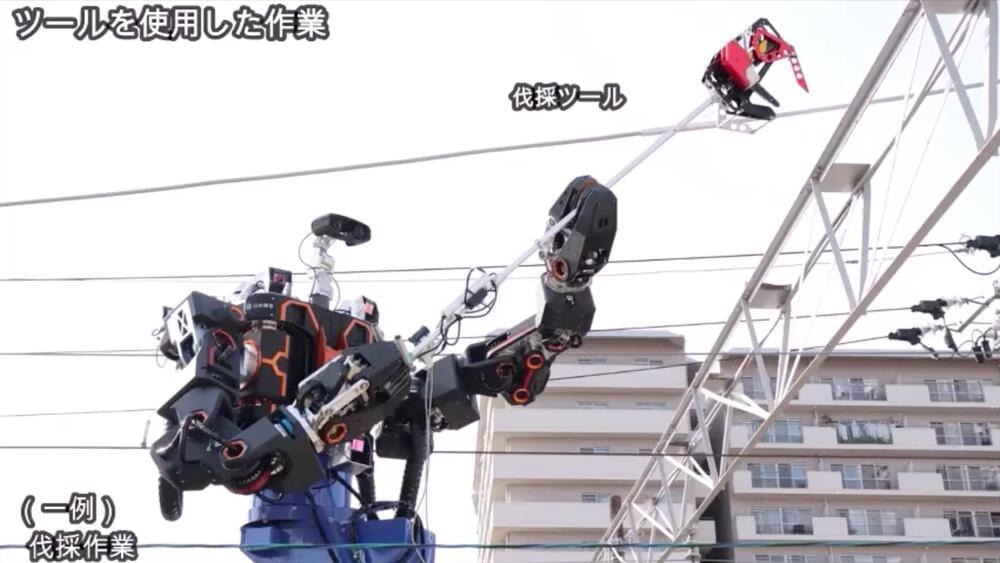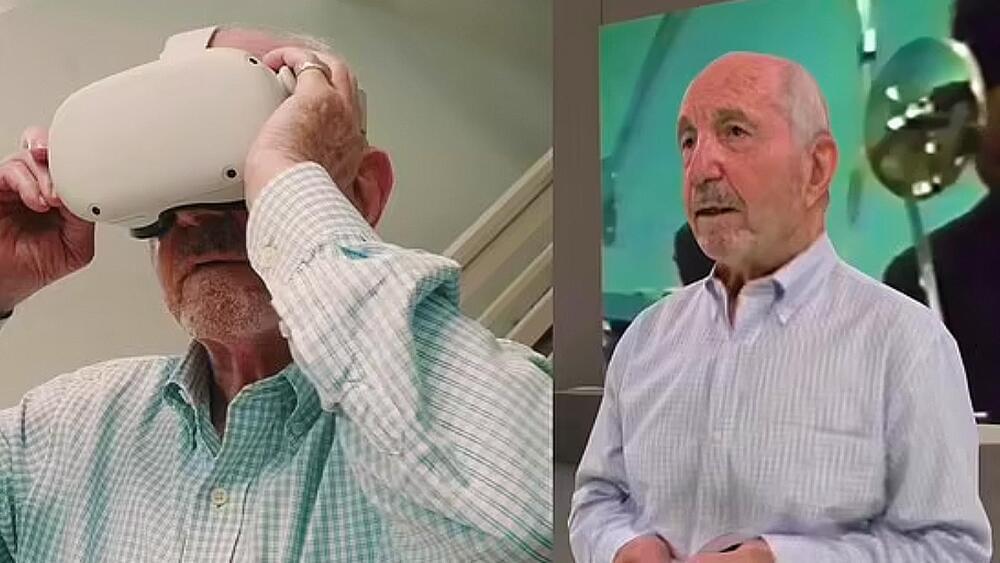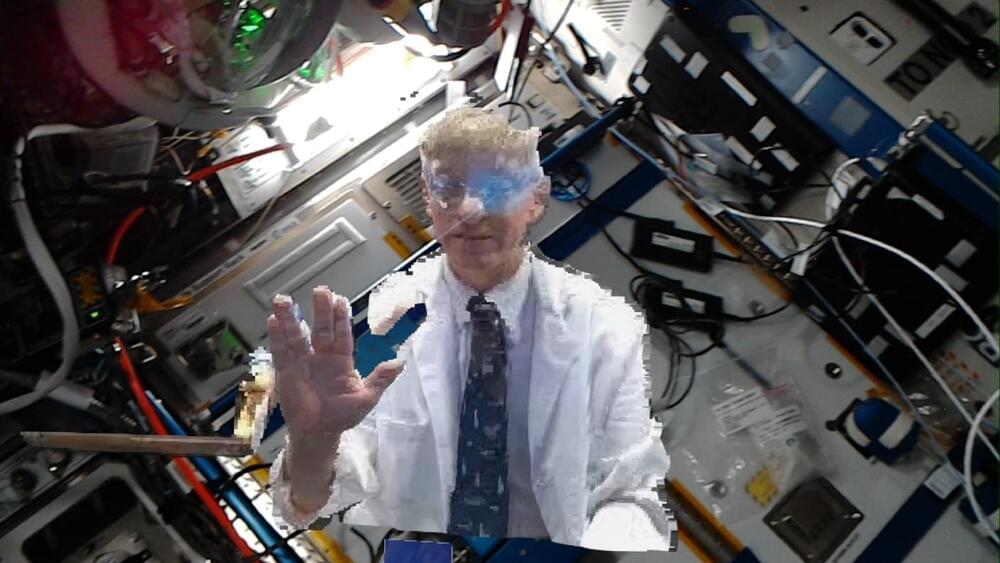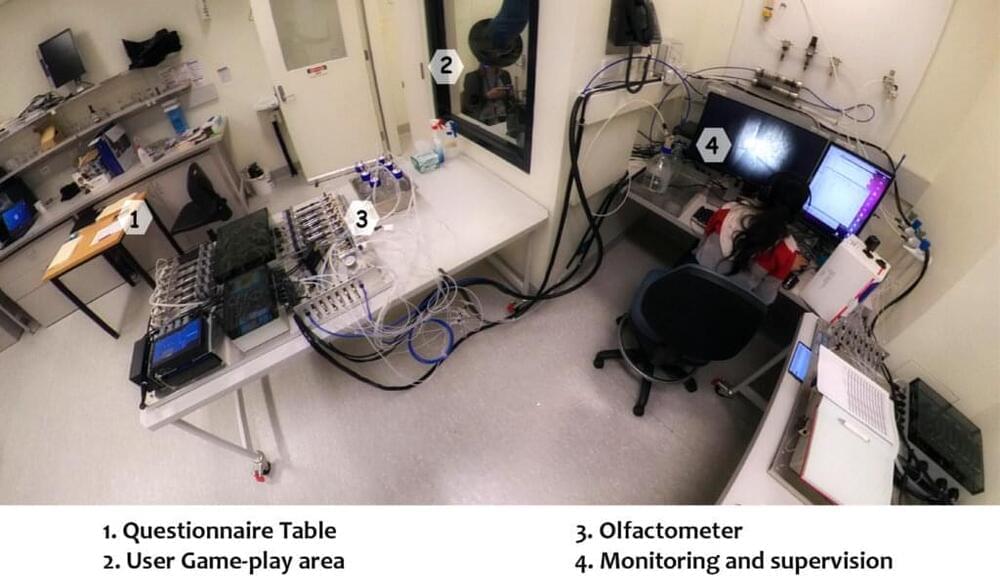The West Japan Rail Company has released video of its new humanoid heavy equipment robot. Mounted on the end of a crane, this gundam-style robot torso mimics the arm and head motions of a human pilot, who sees through the robot’s eyes via VR goggles.
The key objectives here, according to the company, are “to improve productivity and safety,” enabling workers to lift and naturally manipulate heavy equipment around the rail system without exposing them to the risk of electric shocks or falling.
The robot’s large torso is mounted to a hydraulic crane arm, which rides around the rail system on a specially braced rail car, putting down stabilizing legs when it’s time to get to work.





